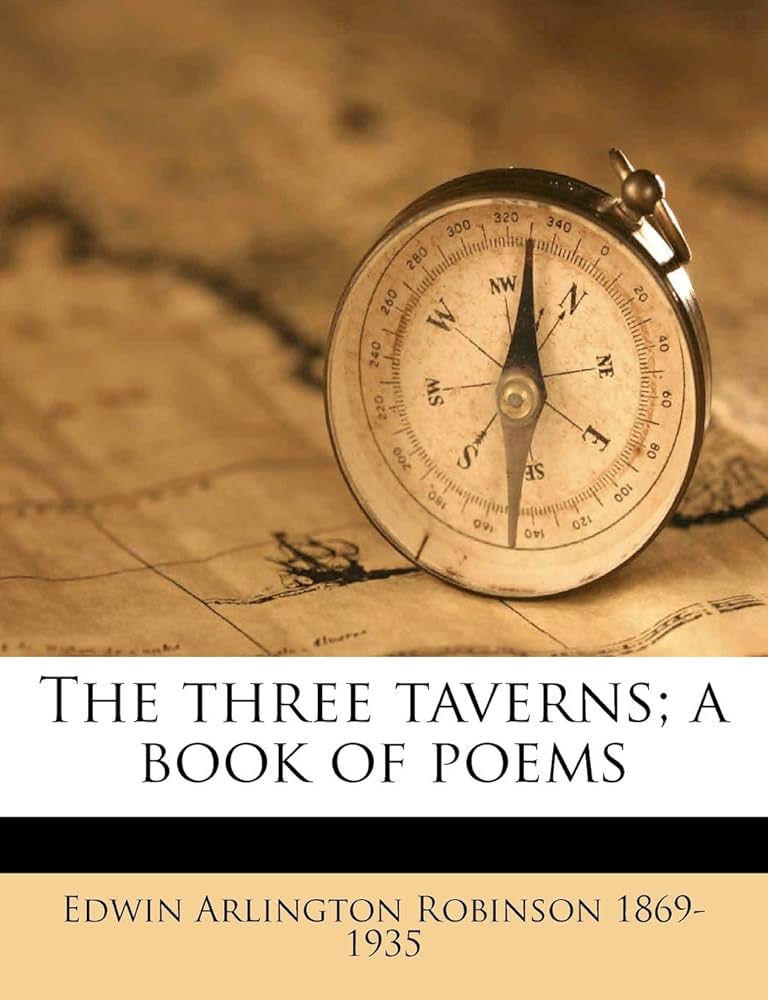The Three Taverns
byThe Three Taverns opens with a man traveling not merely along a Roman road but through the deeper terrain of belief, sacrifice, and fate. His thoughts are heavy yet calm, as if peace had been hard-won through long reflection. He does not fear the end, for he sees it not as final but as the continuation of his purpose. What burdens him is not death, but the weight of the message he carries—one forged in love, tested by opposition, and proven in suffering. His mission is less about conversion and more about awakening hearts long lulled by comfort or shackled by fear. The road narrows, and he sees his life’s meaning not in its length, but in the light it may leave behind.
As he approaches Rome, the speaker revisits the path that brought him here. Once he was an enemy of the message he now bears, but conviction reshaped him from within. He believes faith cannot be inherited or enforced; it must be born in fire and carried forward in gentleness. He does not argue against law, but he sees its limits—how it may cage a soul without ever freeing it. Love, he asserts, is the true fulfillment of law’s intent, a fire that consumes pride and leaves humility. In the echo of prison walls or the silence of rejection, he has found a clearer voice than in public debate. That voice tells him this journey has not been in vain.
The journey has not only tested him physically but mentally and spiritually. He has stood among doubters, listened to sneers, and watched those closest to him waver. And still, he walks forward. His eyes no longer seek applause; they search for those small signs of transformation—the softened gaze, the quiet listener, the weary soul made lighter by truth. He knows these moments are not grand miracles but small proofs of grace, and they carry more weight than arguments or titles. He has come to measure success by souls stirred, not by sermons praised.
Loneliness has become his companion, not his enemy. In its quiet company, he has heard truths that noise often obscures. He knows the cost of speaking what few wish to hear, yet he speaks still. For him, freedom is not the absence of chains but the presence of purpose. Even in the cell, he has felt more free than men who rule from thrones built on fear. The taverns ahead are not symbols of rest, but reminders that even those chosen paths come with sorrow. He sees the road not as a burden, but as a gift wrapped in trial.
He offers no promise of ease to those who follow, only the assurance that the path holds meaning if walked with love. Those who come after him may face different trials, but the need to choose between comfort and truth will remain. His message is not about building temples of stone but lives shaped by compassion. He warns of doctrine replacing kindness, of pride masking itself as piety. Yet he believes the core remains strong—faith that walks, not boasts. He trusts that what he leaves behind is not doctrine alone, but courage seeded in others.
As he nears Rome, he does not dread what awaits. If Caesar’s judgment brings death, he sees it as another step in the story—not an end, but a return. The soul, he believes, is not measured by how long it endures, but by what it endures for. He recalls those who stood with him briefly and then fell away, not in judgment but in sorrow. Still, the flame that burns in him remains, though it may flicker in others. He walks forward because the light, once received, cannot be unlit.
Through this introspective narrative, Edwin Arlington Robinson gives voice to one who walks with history but speaks timeless truths. The poem speaks not only to believers, but to all who have carried conviction through hardship. It reflects the cost of integrity and the quiet triumph of enduring belief. Paul’s words echo through the ages not because of miracles performed, but because of a life lived in faithful tension between pain and purpose. In that tension, he found peace—not the peace of the world, but the kind that steadies the soul for whatever lies ahead. The Three Taverns leaves us not with answers, but with the invitation to walk our own road, hearts open and spirits willing to bear light in dark places.

